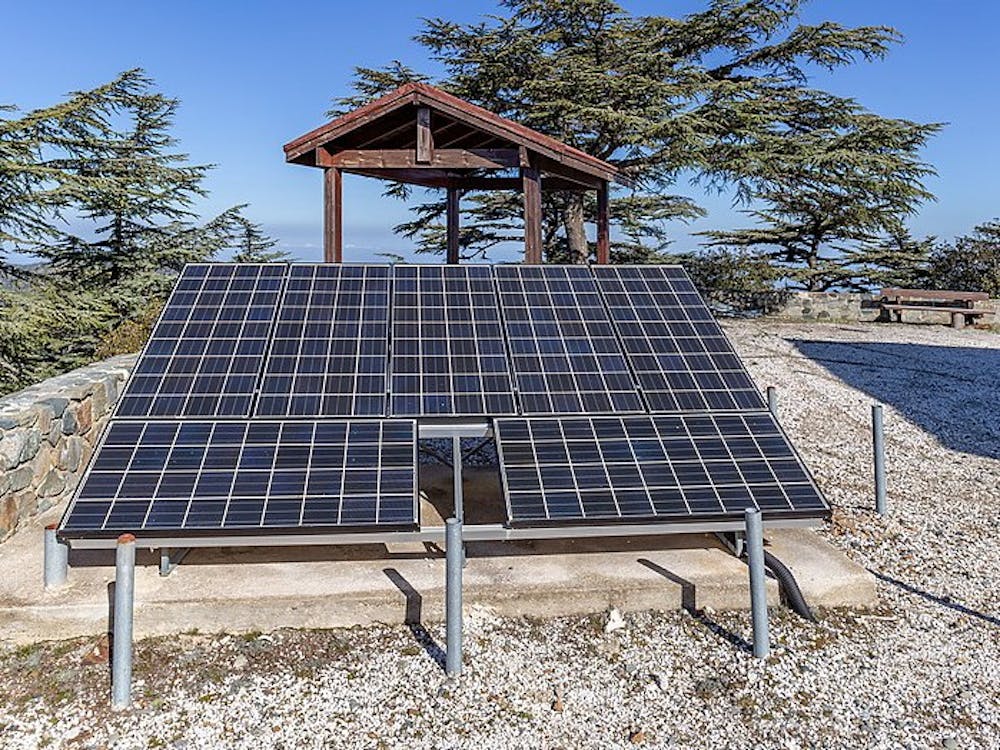A global pandemic has upended many facets of life—including the environment.
Changing office practices, online learning and new manufacturing protocols during the pandemic have all contributed to changes in energy use, while pandemic-related economic conditions have boosted renewables and changed the calculus for states—and schools—investing in sustainability.
“People working at home does change the profile of electricity use, particularly energy use, so there's more being used in residential facilities and less being used in commercial facilities,” said Brian Murray, director of the Duke University Energy Initiative. “And in net that hasn't led to an increase in electricity demand, but it has led to a reshaping of where that demand is, and it's in residential households.”
Even for workplaces that have decided to re-open their facilities and established procedures for returning to the workplace, there will be very different expectations and protocols for what is considered the new normal.
In a May press briefing on the pandemic’s effect on the environment, Drew Shindell, Nicholas School distinguished professor of earth science and co-author of a 2018 United Nations report on climate change, spoke of the importance of policy dictating returns to workplaces.
“The real question is what happens going forward? Do we decide that, hey, telecommuting works, and we like not having as many cars clogging up downtown streets, and let’s make this the new normal?” Shindell said. “Or do we decide that … the economy is in really poor shape and we need to pour money into tried and true things like propping up fossil fuel industries.”
Some of the impacts of changing energy demand have served as an overall positive force for the development of renewable energy sources, Murray said, including low costs of oil and gas that have pushed down their appeal to investors.
“Those have actually been less attractive investments for investors because they are getting low rates of return because the prices have plummeted,” he said.
On the other hand, renewables—which are have high physical infrastructure costs up front—are more attractive, with low interest rates making it cheaper to invest in that infrastructure.
To Murray, these pandemic-related economic conditions have given renewables a boost. Combined with the policy incentives to shift from fossil fuels to renewables, many states are making progress toward targets for renewable energy.
Duke itself is faced with the task of achieving carbon neutrality in the next four years. The University’s continued efforts to reduce emissions and purchase carbon offsets where necessary make up its Climate Action Plan, which seeks to make Duke carbon neutral by 2024.
A significant step toward this goal was the August announcement that the University was purchasing 101 megawatts of solar energy capacity in North Carolina, partnering with the Ashville-based Pine Gate Renewables.
“That's a pretty substantial amount of capacity that they're going to be investing in. That has a big impact in terms of achieving sustainability goals that have been set for 2024,” Murray said.
He added that the addition of a Board of Trustees Task Force on Climate Change and Sustainability “signals that the University's highest level of governance is taking the issues of climate and sustainability seriously.” That task force had its first meeting over the weekend at the quarterly Board of Trustees meeting.
Along with the boost to renewables, Shindell pointed out that the upheaval caused by the pandemic—along with the possible solutions for economic recovery—deeply related to environmental issues.
“Do we build back better and get a new society where we put people to work doing things that will help the environment long term?” he asked.
Shindell also pointed to the potential for a transition to renewables to provide jobs at a time when they are needed more than ever.
“Given how many millions of people are out of work, and how much work there is to be done, there are fairly non-specialized, low-skill jobs that can be given out to millions and millions of people that can aid the transition,” he said.
Get The Chronicle straight to your inbox
Sign up for our weekly newsletter. Cancel at any time.

